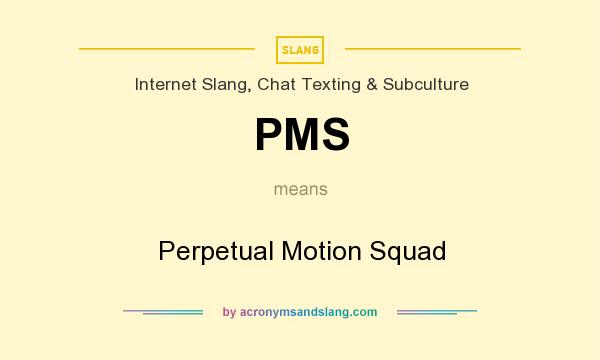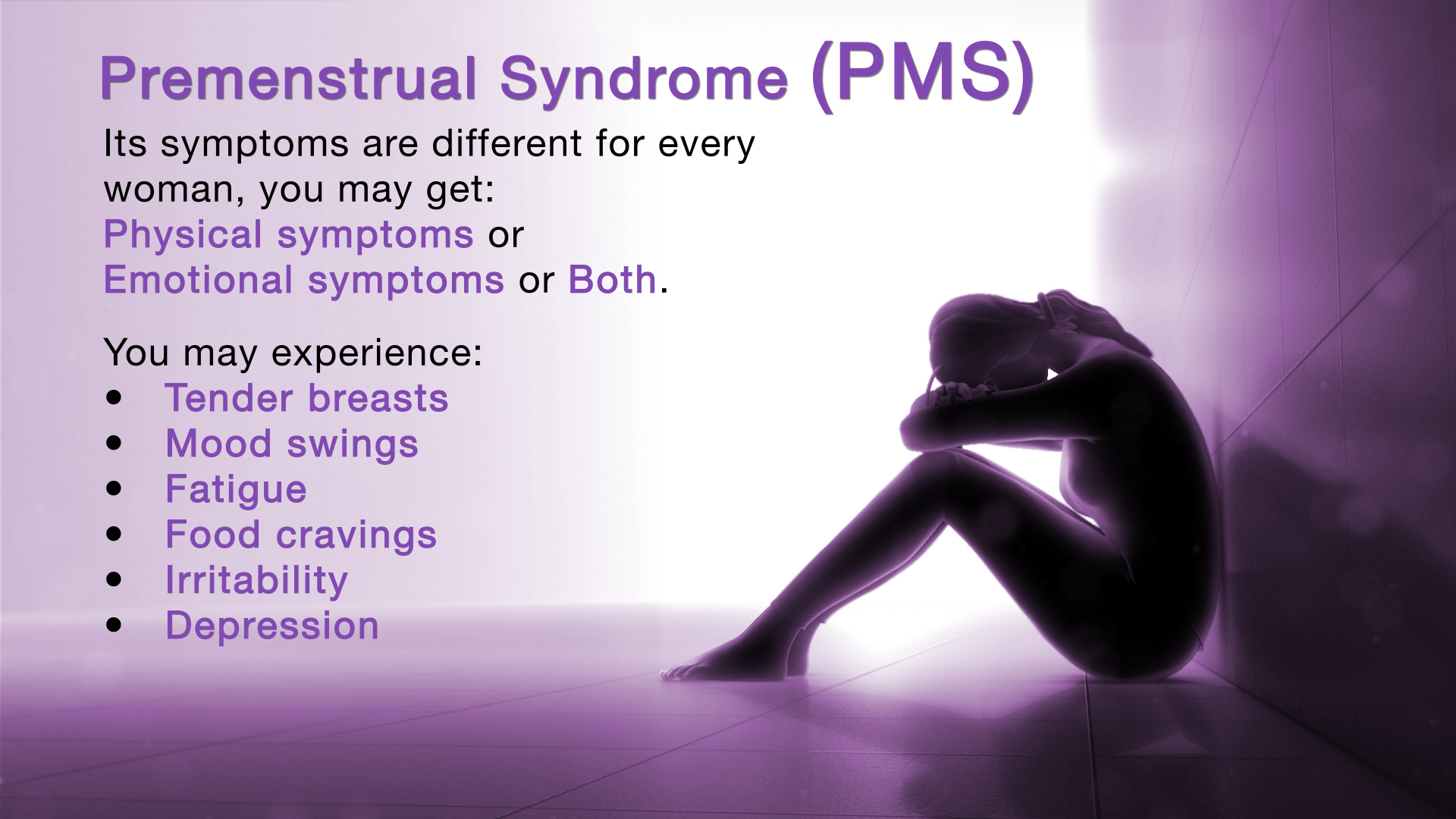Decoding "PMS Meaning Slang": What People Really Mean
Have you ever heard someone say, "Oh, I'm just PMSing," and wondered what they really meant? It's a phrase that gets tossed around quite a bit, so, too it's almost, you might hear it in casual chats, or perhaps even in a more heated moment. This common saying, while linked to a medical condition, often takes on a very different life in everyday conversation. We are going to unpack what "PMS" truly means when it's used as slang, and how that compares to the actual medical definition. Understanding this can help us all communicate a little better, and maybe even show a bit more empathy, you know, for ourselves and for others.
The term "PMS" comes from "Premenstrual Syndrome," a medical condition that many women experience. My text explains that premenstrual syndrome has a wide variety of signs and symptoms. These can include mood swings, feeling tender in the breasts, having food cravings, feeling tired, being irritable, and even experiencing depression. For many women, making changes to their daily life can help make these symptoms feel a bit better. However, depending on how severe the symptoms are, a doctor might suggest other ways to help, perhaps even prescribing something.
But when people use "PMS" in a casual way, as slang, they're often talking about something else entirely. It's usually a quick way to describe feeling moody, short-tempered, or just generally out of sorts, whether or not it's actually related to a menstrual cycle. This can sometimes lead to misunderstandings, or even make light of what can be a really challenging time for those who truly experience premenstrual syndrome. We'll explore the differences and how to talk about these feelings more clearly, actually, which is quite important.
Table of Contents
- What is PMS, Medically Speaking?
- The Slang Side of PMS: What It Really Implies
- Why the Slang Can Be Tricky
- Talking About Feelings: Beyond the Slang
- Managing PMS Symptoms: Real Help
- Frequently Asked Questions
What is PMS, Medically Speaking?
Let's start with the facts, because, you know, it's good to have that clear. Premenstrual Syndrome, or PMS, is a real condition that affects many women during the days or weeks leading up to their menstrual period. My text points out that it involves a whole range of signs and feelings. These can be things like mood shifts, a feeling of soreness in the breasts, wanting certain foods, feeling drained of energy, becoming easily annoyed, and a sense of sadness or gloom.
It's estimated that nearly three out of every four women who have periods will experience some form of PMS. This means it's a very common experience. The feelings and body changes can vary a lot from person to person, and also from one cycle to the next. Some women might just feel a little off, while for others, the impact can be quite significant, making daily tasks a bit of a struggle, in a way.
There is also a more severe form of this condition called Premenstrual Dysphoric Disorder, or PMDD. My text describes PMDD as a very serious, sometimes disabling, extension of PMS. While both PMS and PMDD involve changes in how someone feels and what their body does, PMDD symptoms are much more intense and can really disrupt a person's life. It's not just "feeling a little moody," it's a profound shift that needs serious attention, you know, like a doctor's help.
Doctors do not have one single test, like a blood test or a physical check, that can say for sure if someone has PMS. Instead, they look for a pattern. If a particular feeling or body change happens predictably before a period, and then goes away once the period starts, a doctor might connect that feeling to PMS. Keeping a record of how you feel can really help a doctor figure things out, which, actually, is very useful.
The Slang Side of PMS: What It Really Implies
Now, let's talk about how "PMS" is used in casual talk. When someone says "I'm PMSing," or "She's PMSing," it often has little to do with the actual medical condition. It's typically a quick, sometimes dismissive, way to explain away someone's moodiness, irritability, or perhaps a sudden outburst. This usage can apply to anyone, regardless of whether they have a menstrual cycle or not, which, you know, is a bit interesting.
For instance, a person might say, "My boss is totally PMSing today," meaning their boss is acting grumpy or unreasonable. Or, someone might joke, "I must be PMSing, I just want to eat all the chocolate," even if they are not near their period. It has become a sort of shorthand for general grumpiness or strong emotions, often with a slight hint of an excuse or a joke, you know, like it's not to be taken too seriously.
This slang use tends to focus only on the mood-related aspects of PMS, like being irritable or having mood swings. It largely ignores the other body changes that are part of the medical condition, such as tender breasts, tiredness, or food cravings, unless they are used in a humorous way. It's a very narrow view, and, quite frankly, it can be a bit unfair to those who truly experience the full range of PMS symptoms.
The casual use of "PMS" can also carry a negative feeling, implying that someone's emotions are not valid or are simply due to their biology. This can make people feel dismissed or misunderstood. It's almost like saying, "Oh, don't worry about what they're saying, they're just acting like that because of hormones." This really takes away from the idea that feelings, even strong ones, deserve to be heard and understood, which, in some respects, is a big deal.
Why the Slang Can Be Tricky
Using "PMS" as slang comes with some problems. For one, it can make light of a real medical condition. For many women, PMS is not just a "mood," it is a collection of physical and emotional challenges that can affect their daily life, you know, quite a lot. When the term is used casually, it can make it seem like these experiences are not serious or are just an exaggeration.
It can also promote stereotypes. The idea that women are "hormonal" or "emotional" is an old one, and using "PMS" as a catch-all for any strong female emotion can reinforce these harmful ideas. This can make it harder for women to express their feelings without being labeled or dismissed. It's a bit like saying, "Oh, she's just being dramatic," which, you know, isn't fair.
Another issue is that it can prevent real conversations about feelings. If someone is genuinely feeling upset or irritable, and another person just says, "Are you PMSing?", it shuts down any chance for deeper discussion. It stops the person from talking about what might actually be bothering them, like stress at work, problems in a relationship, or other health issues. This can be quite isolating, actually.
Furthermore, it can be hurtful. Imagine someone is truly struggling with the symptoms of PMS, feeling tired, sore, and emotional, and then hears the term used as a joke about someone else's bad mood. It can feel like their real pain is being trivialized. It's important to remember that words carry weight, and how we use them can really impact others, you know, quite deeply.
Talking About Feelings: Beyond the Slang
So, how can we talk about these feelings without falling back on the slang term? The key is to be more specific and to approach conversations with a sense of care. Instead of saying, "Are you PMSing?", you could ask, "Are you feeling okay today? You seem a little quiet," or "Is there anything on your mind?" This opens up a real conversation, you know, and shows you care.
If you are the one feeling moody or irritable, and you think it might be related to your cycle, you can describe your feelings directly. You might say, "I'm feeling a bit more irritable than usual this week," or "My mood has been shifting a lot lately." This helps others understand what you are going through without using a term that might be misunderstood or misused, which, basically, is very helpful.
It's also helpful to remember that everyone, regardless of gender or menstrual cycle, can experience mood swings, fatigue, or irritability. Life can be stressful, and our emotions are a normal response to what we go through. Attributing all strong emotions to "PMS" can ignore other reasons why someone might be feeling a certain way. We all have our ups and downs, you know, and that's just part of being human.
Encouraging open talk about feelings, and being ready to listen without judgment, can create a more supportive environment. If someone says they are feeling a certain way, try to listen to what they are truly saying, rather than trying to label it with a quick phrase. This helps build stronger connections and better understanding among people, which, you know, is really what it's all about.
Managing PMS Symptoms: Real Help
For those who do experience actual Premenstrual Syndrome, there are ways to manage the feelings and body changes. My text mentions that lifestyle changes can often help. This might include things like getting regular physical activity, eating well, getting enough sleep, and finding ways to reduce daily stress. These simple steps can make a big difference for many, you know, quite a lot.
Physical activity, for example, can help lift your mood and reduce tiredness. Eating a balanced diet, with plenty of fruits, vegetables, and whole grains, can help keep your energy levels steady. Getting consistent sleep can also help with mood and fatigue. And finding ways to relax, like meditation or gentle walks, can help calm irritability and stress, which, honestly, can be very effective.
If these lifestyle changes are not enough, or if your symptoms are very severe, it's a good idea to talk with a doctor. My text states that depending on how severe your symptoms are, your doctor may suggest other treatments. This could include certain medications, like pain relievers for cramps, or even hormonal treatments in some cases. A doctor can help you figure out the best plan for your specific needs, which, you know, is very important.
For more detailed information about managing premenstrual syndrome, you can visit a reputable health resource like the Mayo Clinic. Remember, seeking help for real PMS is a sign of strength, not weakness. There are many ways to find relief and improve your quality of life, you know, and that's a good thing.
Frequently Asked Questions
Is "PMS" just an excuse for bad behavior?
No, not really. When people use "PMS" as slang, they might use it to explain away a bad mood or behavior, but medically speaking, Premenstrual Syndrome is a real condition with a range of symptoms, including mood changes. It's not an excuse, but a genuine experience for many, you know, like a physical challenge.
How is slang "PMS" different from medical PMS?
Slang "PMS" is usually a casual way to describe general grumpiness or irritability, and it can be used for anyone, regardless of their menstrual cycle. Medical PMS, on the other hand, is a diagnosed condition that involves specific physical and emotional symptoms occurring in a predictable pattern before a menstrual period, and it only affects those who menstruate. The slang version, you know, is a bit of an oversimplification.
Can men experience "PMS" in the slang sense?
Yes, in the slang sense, anyone can be described as "PMSing" if they are moody, irritable, or acting grumpy, even men. However, medically, Premenstrual Syndrome is linked to the menstrual cycle and therefore only affects women who menstruate. So, basically, it's about how the term is used, not the actual medical condition.
Understanding the difference between the medical term and its slang use helps us talk more clearly about our feelings and experiences. It also helps us show more kindness to ourselves and to others. You can learn more about premenstrual syndrome on our site, and if you want to understand how moods can shift, you might also like to explore this page about understanding mood swings.

PMS - Perpetual Motion Squad in Internet Slang, Chat Texting

PMS Meaning Slang: A Deep Dive into an Often Misunderstood Term

Pms O Que Significa - LIBRAIN